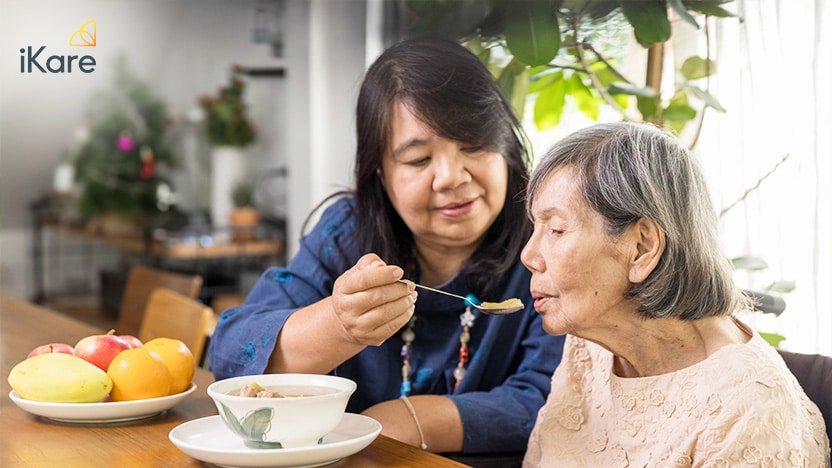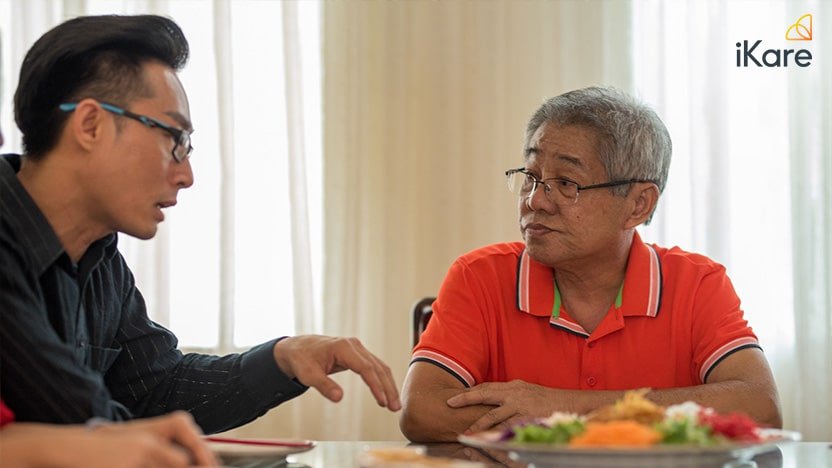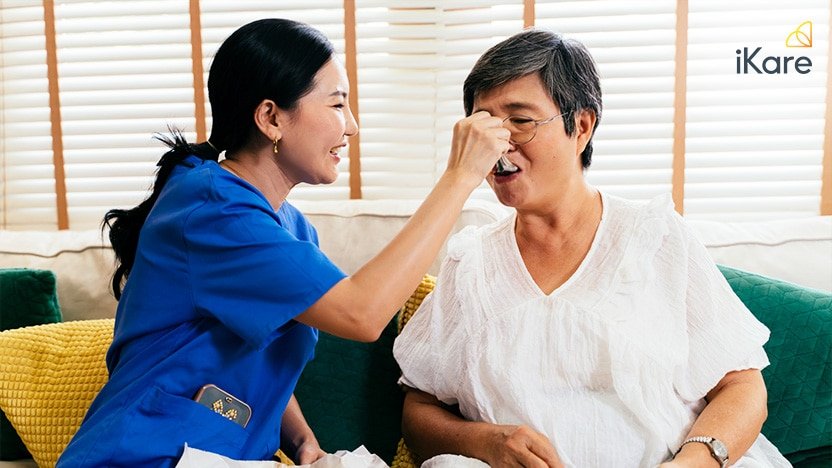
Difficulty with swallowing, known as dysphagia, is a common concern among the elderly, affecting not only their nutritional intake but also their overall well-being. As we age, various factors, such as weakened muscles or neurological issues, can contribute to this condition. The good news is there exist several strategies that can greatly assist the elderly in managing dysphagia, enhancing their eating experience and quality of life. Our team at iKare, a provider of caregiver services in Singapore, has compiled these effective tips to help you provide enhanced care for your loved ones.
Turn their head to the side when swallowing
Caring for your senior family member involves thoughtful adjustments, like paying attention to their head position during meals. By tilting the head slightly downward, the natural force of gravity acts as a helpful guide, ensuring that food moves smoothly and safely towards the oesophagus. This small adjustment can make a significant difference, bringing more comfort to the swallowing process. In fact, research in dysphagia management has suggested that subtle head rotation manoeuvres might assist in minimising the risk of aspiration.
Prepare smaller bites of food

If your elderly family member faces challenges with swallowing, it’s helpful to cut their food into smaller, more manageable bites. This simple gesture alleviates the physical strain associated with chewing and swallowing, mitigating the potential risks of discomfort or obstruction during meals and enhancing the overall dining experience.
Moreover, changing the texture of food by pureeing, mashing, or adding moisture can make it easier for your loved ones to enjoy their meals. These adjustments not only improve safety for those grappling with dysphagia, but also allow them to savour each dish.
Providing emotional support

The struggle to swallow or adapt to modified diets can have negative impacts on a senior’s emotional health, disrupting their normalcy and hindering them from socialising during meals. Providing support that starts with attentive listening can help you establish a nurturing and understanding environment, easing the emotional stress your loved one may be experiencing. Rather than dwelling on challenges, they may begin to find moments of joy as swallowing gradually becomes easier, transforming mealtimes into a pleasant social affair, uplifting spirits and improving overall well-being.
Seek Professional Help

Seeking guidance from healthcare professionals trained in managing dysphagia, such as speech therapists, is one of the key ways to help seniors at home facing swallowing difficulties. At iKare, our care providers undergo comprehensive caregiver training, bringing expertise to address dysphagia in a compassionate and holistic manner. Our home care services follow a meticulous approach to enhance overall eating experiences, which involves assessments to gauge dysphagia severity, personalised dietary plans, guidance on adaptive devices, and exercises designed to strengthen muscles that are engaged during swallowing.
An example of such an exercise could be taking a small sip of water, focusing on engaging throat muscles. To make the process more manageable, seniors will be recommended to take short breaks between repetitions, then gradually increasing them as advised. We understand that each individual’s journey is unique, and our goal is to provide support that is tailored to your loved one’s needs.
Learn more: How to Deal With Stress and Anxiety in Caregiving
Managing dysphagia requires a combination of practical strategies and professional assistance. When these approaches work together, they empower elderly family members to enjoy safer and more comfortable mealtimes.
Looking for personalised care and support for your loved ones? Reach out to iKare today for a caregiving experience that prioritises their comfort and safety, providing you with greater peace of mind.

